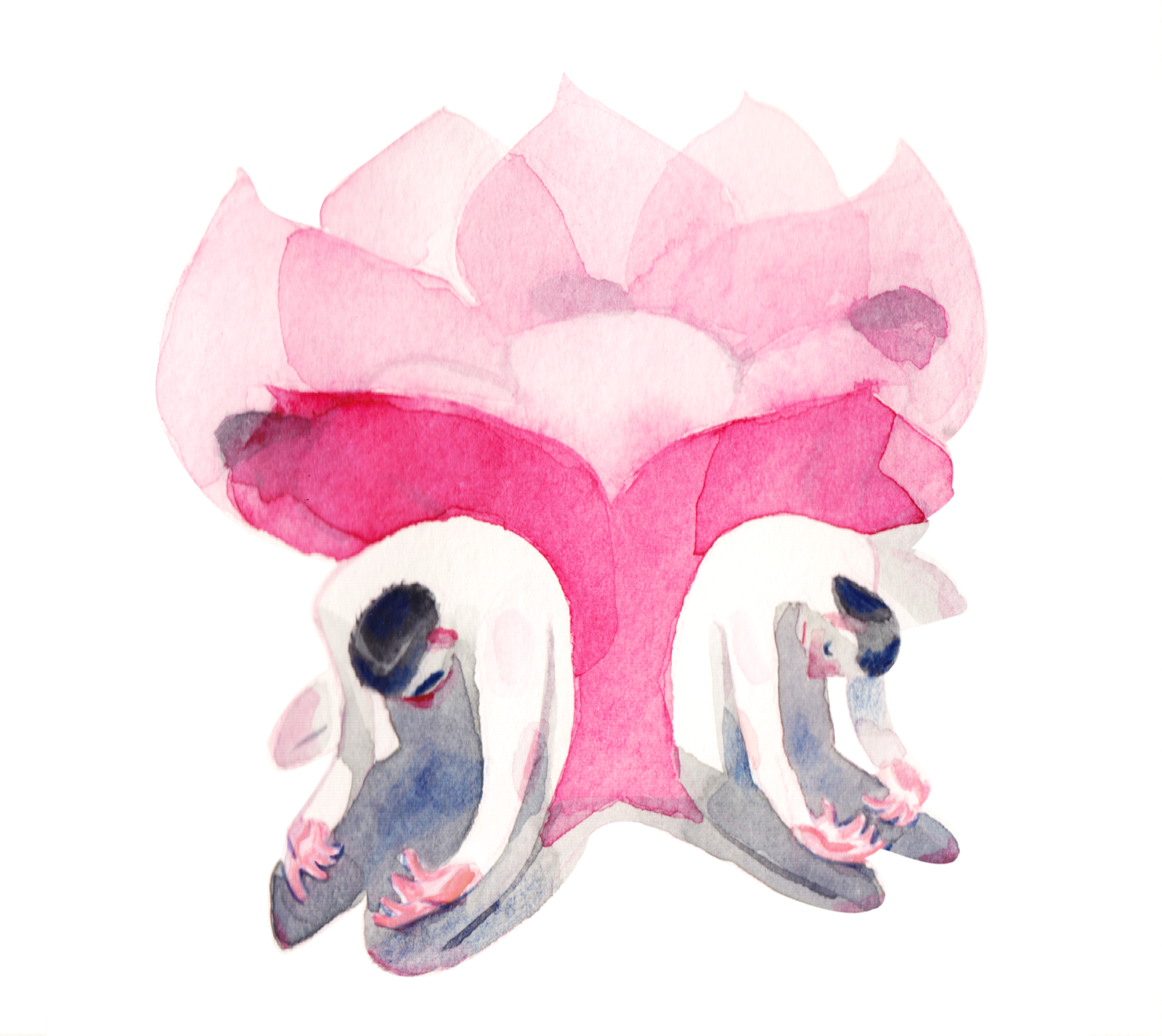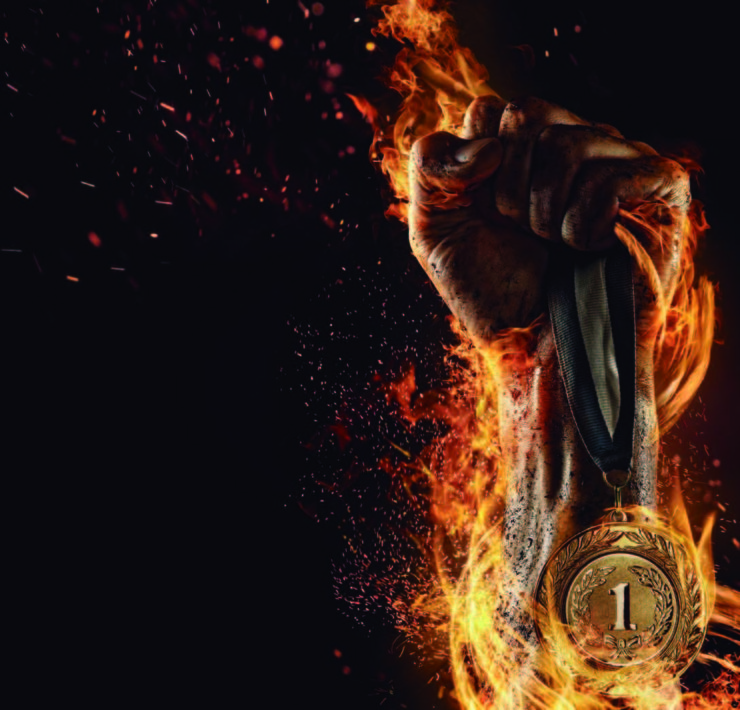Fallen Gurus and the Myth of Free Will

With a PhD in psychology from Yale University, Bonnie is…
It happened to Swami Muktananda in the 1980s. The yogi who oversaw hundreds of ashrams worldwide was accused by multiple women of being a sexual predator.
It happened to Kripalu Yoga founder Amrit Desai, who, in the early 90s, was accused of and eventually admitted to several sexual relationships with women at his Stockbridge, Massachusetts, ashram.
It happened to superstar yoga teacher Rodney Yee. Almost a dozen years ago, he later admitted, he carried on extramarital affairs with students. He later left his wife of 24 years to be with Colleen Saidman, another prominent yoga teacher who left her own spouse for Yee.
It happened to John Friend, who last year stepped away from his post atop the Anusara school of yoga he founded, accused of both sexual and fiscal impropriety.
The latest yogi to take a public dive is Bikram Choudhury, multimillionaire founder of Bikram (“hot”) Yoga. Whatever kind of man Choudhury may be, “simple” and “humble” are not words anyone would use to describe him. The 67-year-old is fond of showing off the external markers of his success: the wall of celebrities who’ve trained with him, including Lady Gaga, Madonna, George Clooney, and Michael Jackson; his sumptuous living spaces; and his antique car collection (which, by some accounts, includes some 40 Rolls-Royces). When asked by an interviewer from the ABC program Nightline why Americans are so fascinated with yoga, Choudhury is quick to answer, “It’s because of me!”

In the 105-degree heat of the classroom, students hunker and tremble in Eagle Pose, sweat flowing from every pore. Choudhury regales them with promises of the wonders this will do for their sex lives. Giggles and hoots from the crowd suggest these kinds of comments are typical of Choudhury’s quirkiness—part of the show, if you will. But some of his students and employees accuse him of being more than harmlessly eccentric and irreverent. At least two separate lawsuits filed against the yoga mogul accuse him of sexual harassment, rape, racial discrimination, threats of violence—and more. For his part, Choudhury staunchly (and somewhat obtusely) insists that he has never lied, cheated, or “hurt another spirit.”
I’ll be the first to admit that whenever I read a headline about a big-time yogi going down in the flames of scandalous rumour, I’m drawn like a moth to those flames; maybe because it’s strangely comforting to experience the heat second hand, without suffering any of the real storm and stress it entails. Seeing a familiar, perhaps even admired, personality come crashing to earth is a little like watching the police arrest your neighbour: you’re not sure whether to feel sorry for his trouble or relieved that the cops are addressing the menace you didn’t know was there all along.
They’re Human
As much as we want to admire our role models, if we expect them to be free of human frailties, they will fail every time. The ability to chant mantras in perfect Sanskrit, play a mean harmonium, perform incredible feats of physical prowess, and fill a room with eager students doesn’t necessarily correlate with a squeaky-clean inner life. Of course, we all deal with various forms of temptation every day. We all act in direct opposition to our own best interests in spite of our good intentions, sometimes with only the reward of a few minutes or seconds of gratification. Who hasn’t fallen prey to overeating, too much drink, or the splurge shopping spree that made us feel happy for a short time and miserable when the bill arrived?
Philosopher and best-selling author Sam Harris argues that being someone who performs despicable acts is simply a matter of very bad luck. After all, Harris argues, “We didn’t make ourselves.” What he means is that we didn’t choose which body to be born in, which parents or upbringing to have, or even where or when we would begin our lives or which people would walk into them.
“Sure,” you might say, “but our own behaviour is the one thing we can control.” Yet Harris would counter that we don’t even control our own thoughts. As psychological research now shows clearly (if your own experience on a meditation cushion hadn’t already taught you), we have no idea how thoughts arise in our minds. They, like our behaviours, are a complex and interdependent web of causes and conditions that propel us from one moment to the next. Every quivering of neural synapses topples another thought into existence, which increases the likelihood of one behaviour as it decreases the chances of another. So every idea, action, and event in the life of Yee, Desai, Choudhury, and Friend contributed to the moment when only their downfall could occur. At any juncture—if Harris is right—the actions that occurred were the only ones that could have happened, given everything that came before. Harris’ “bad luck” sounds a lot like karma, doesn’t it?
This is why the old saying “follow the teachings, not the teacher” is so vitally important. Unlike the human teacher—that hapless sentient being, who, like us, is subject to the waves of karma, answerable in misery for every misdeed we’ve ever committed—the teachings simply are what they are. They neither gain nor lose anything by our approval or lack thereof. In fact, they’re pretty indifferent to our opinions.
Looking Through the Wrong End of the Telescope
As a yoga teacher, I know all too well how hard it is to carve out time for one’s own practice–not the just the physical part, but the inner work as well. And if you have to choose between keeping up your physical chops and working on your inner life, guess which weakness is usually easier to hide from your students (to a point, anyway)? Take a heavy teaching schedule that’s required to keep the studio lights on, and add touring, teacher training, workshops, interviews, and maybe a publisher’s demand for the next big book, and life soon becomes about putting in appearances. It’s as if the telescope that used to offer a nice, expansive view of life, yoga, and everything has been turned around and only shows the narrow focus of one’s self at the centre of the universe.
Moral lapses that dethrone the formerly trusted and venerable yogi represent inner work that has been delayed or insufficiently tended for too long. And the irony is that sometimes, the protagonist is too wrapped up in the small view to realize there is another way to look at things. Causes and conditions march on relentlessly, and at some juncture, negative outcomes are guaranteed.
If a Guru Falls in the Forest . . .
Whenever we seek out role models with unshakeable confidence, flawless delivery, and throngs of adoring students, we contribute to the conditions that perpetuate this small view and the moral dilemmas that arise within it. We want our heroes to be larger than life, eccentric, and a bit immune to the ordinary rules the rest of us have to follow. Why else would so many people be up in arms when they learned that Oprah was once denied entry to a swanky boutique 15 minutes after it had closed? And why would most balding 67-year-old men be the butt of jokes if they were caught parading around with their buns hanging out of a Speedo-type garment, but the same behaviour by Bikram Choudhury would be written off as eccentric and even mimicked by many of his students?
The fallen gurus’ guilt or innocence, although raked about in the popular press, is not really ours to decide. A more constructive action would be to make a few aspirations that their heavy karmic debt might somehow serve to enrich the rest of us:
May their fall from grace remind us to keep upholding and insisting on ethical principles that pertain to the relationship between one human and another.
May we become better-informed consumers of classes, teachers, and teachings, so that we can make more skillful assessments of real talent, real leadership, and sincere motivation.
And perhaps most importantly of all:
May the missteps of our gurus stimulate our compassion as we remind ourselves that, not having walked a mile in their Speedos, we can’t know whether we’d have done any better.
What's Your Reaction?
With a PhD in psychology from Yale University, Bonnie is on a mission to find the best insights that the field has to offer and to share them with the world. Her online courses, Life Beyond Fear blog, and guided meditations at DrBonnieLynch.com bring you the very best that psychology and related disciplines have to offer in plain English, and ready to use!











